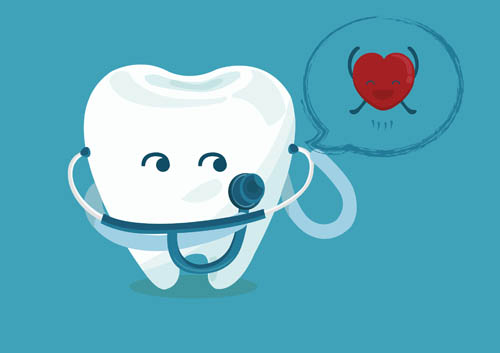What's the connection between gum disease and diabetes?
May 29th, 2018

People who have diabetes are usually familiar with many of the other health risks they face, including damage to the nerves, eyes, heart, and kidneys. But did you know that if you have diabetes you also have a much greater chance of developing gum disease? It's true, and like other diseases related to diabetes, the risk potential severity of gum disease is directly related to how well blood sugar is controlled.
The Causes
In diabetics, there are two primary mechanisms that increase the risk of developing gum disease, also called periodontal disease:
- Bacterial growth: Bacteria love sugar including the glucose found in blood and bodily fluids. Elevated levels of sugar in saliva can provide a very hospitable environment for bacterial growth. The risk may be elevated if your gums bleed.
- Circulatory changes: In diabetes, the blood vessels become thick, making it more difficult for blood to carry oxygen to the gums and to carry away harmful waste products. This decrease in circulation can weaken the mouth's natural resistance to decay. If you smoke, circulation can become even more compromised, significantly increasing your risk of periodontal disease.
Preventing Gum Disease
If you're diabetic, the number-one key to preventing gum disease is to make sure you do all you can to keep your blood sugar under control. In fact, studies show diabetics who have excellent control of their blood sugar levels have no more risk for gum disease than those who don't have diabetes. Here are some other tips to keep your gums healthy:
- Floss your teeth gently, curving the floss so it can gently reach just below your gum line to remove plaque and food particles. Rinse your mouth when you're done flossing.
- Use a soft-bristle brush to brush teeth twice daily, using small circular motions. Avoid pressing too hard on tooth surfaces.
- Brush your tongue gently to remove germs that can hide there.
- Use an anti-bacterial mouthwash to kill germs that are hard to reach.
- Keep track of how well your blood sugar is controlled and let Dr. Kirk Fishbaugh know at each visit.
- Be aware that having diabetes may mean it takes you longer to heal after undergoing oral surgery.
Most importantly, be sure to visit our Green Bay, WI office for regular checkups and tell Dr. Kirk Fishbaugh about your diabetes so you can be sure to get the care you need. Follow these steps, and you can enjoy healthy teeth and gums for years to come.


